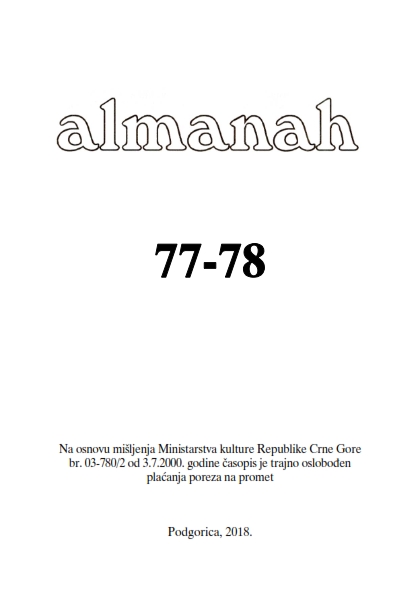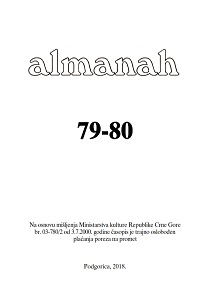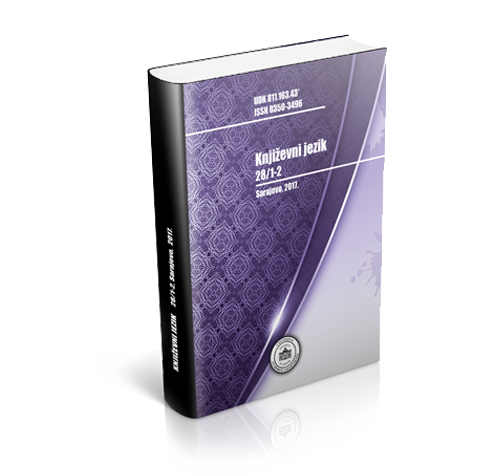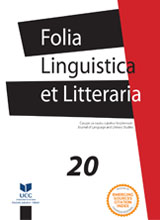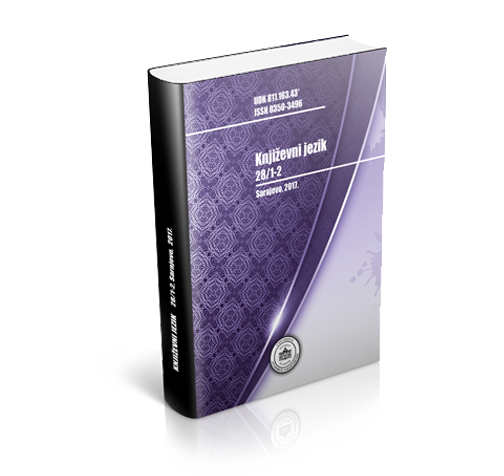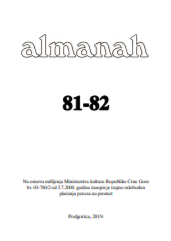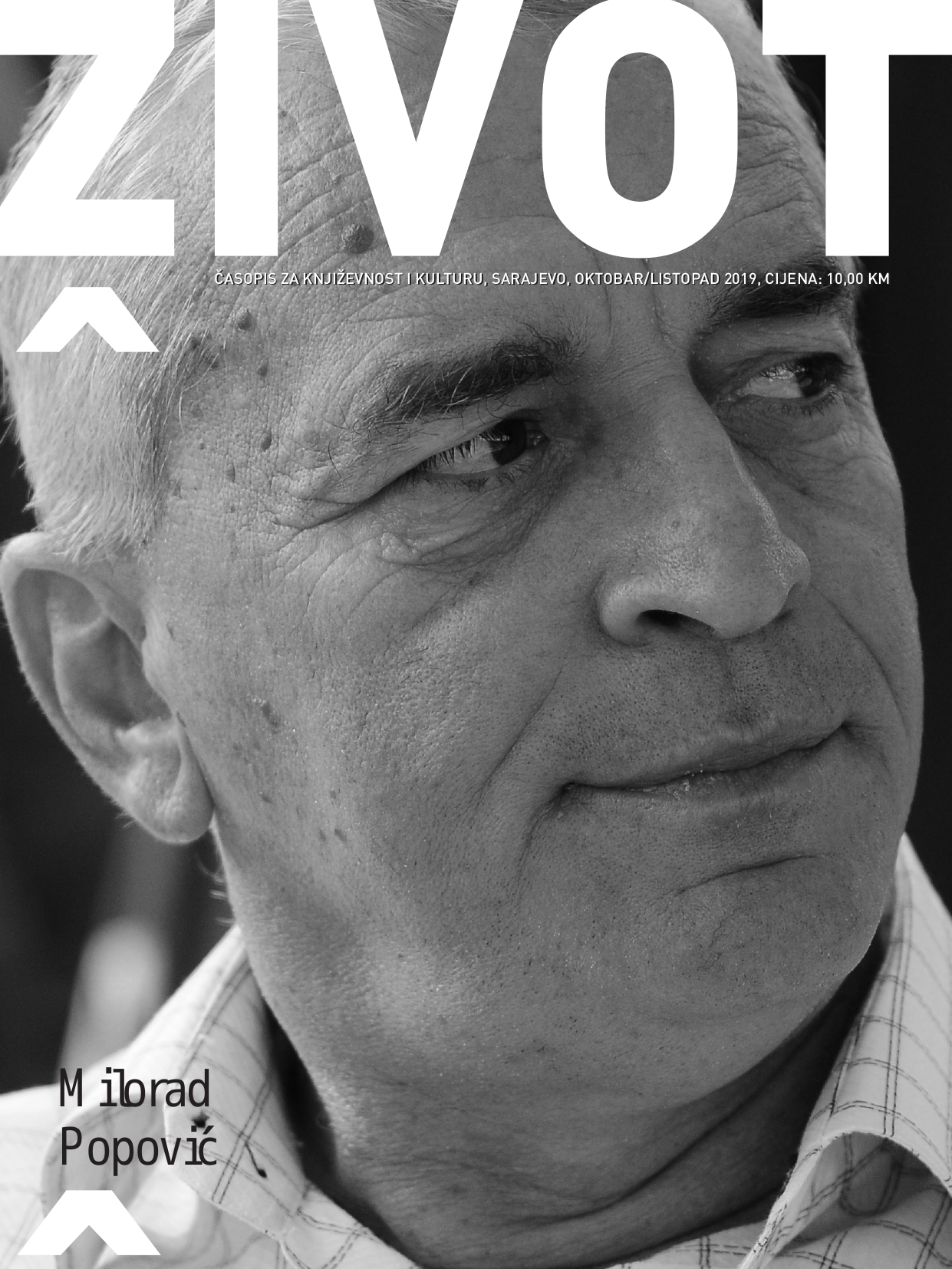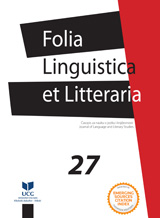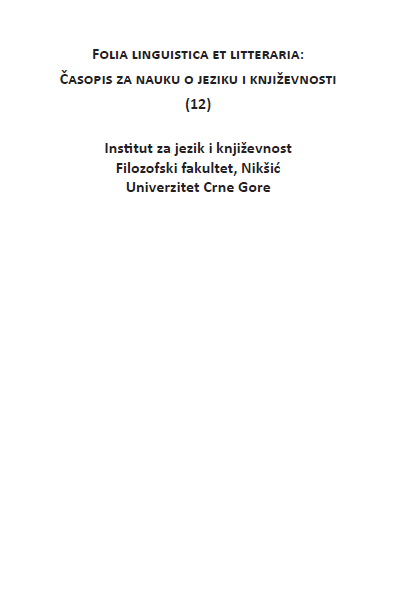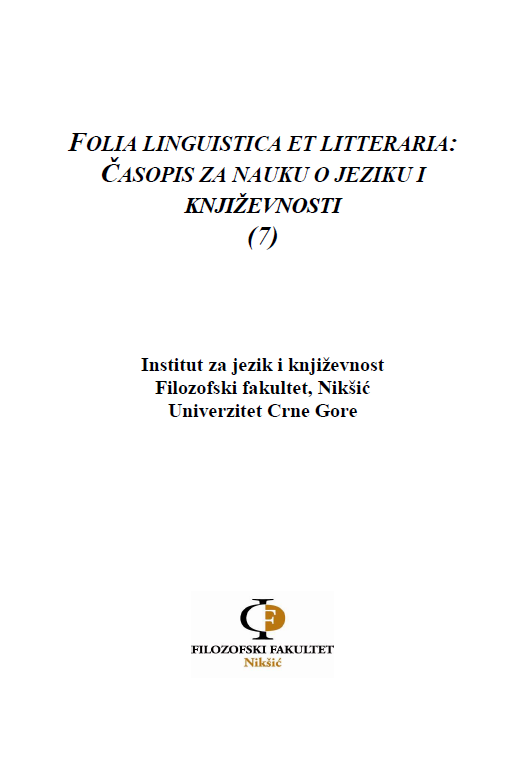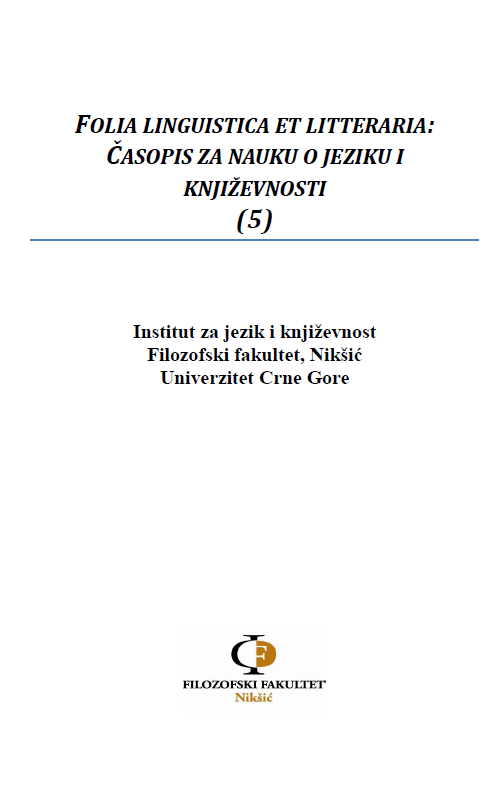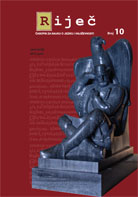
Семантичка и стилска вриједност имперфекта у Његошевом „Огледалу српском“
The paper deals with syntactic-semantic and stylistic value of the imperfect represented in decasyllable epic anthology of folk songs written by Njegoš - Ogledalo srpsko in comparison to the poems of famous poet-singers living in the period of Vuk Karadžić - Starac Milija and Tešan Podrugovića. The researched material shows that the most common imperfect is that of the verb biti, govoriti and htjeti, except for the fact that the latter is usually found in a function of constituent of a modal structure, stylistically marked, since it belongs to the category of dialecticism. The basic meaning of the imperfect does not differ from the one that can be found in the literary language in which it particularly denotes a past action concurrent with another past action. The main characteristics of imperfect and its modal structures in terms of style, except for the formal and archaic tones that are given to the narrative one, is the following: they, in the chosen folk songs, indicate actions perceived only in the poetic imagination, while in the colloquial speech of origin folk singers, usually reflect actions that the speaker (or the addressee) witnessed.
More...
